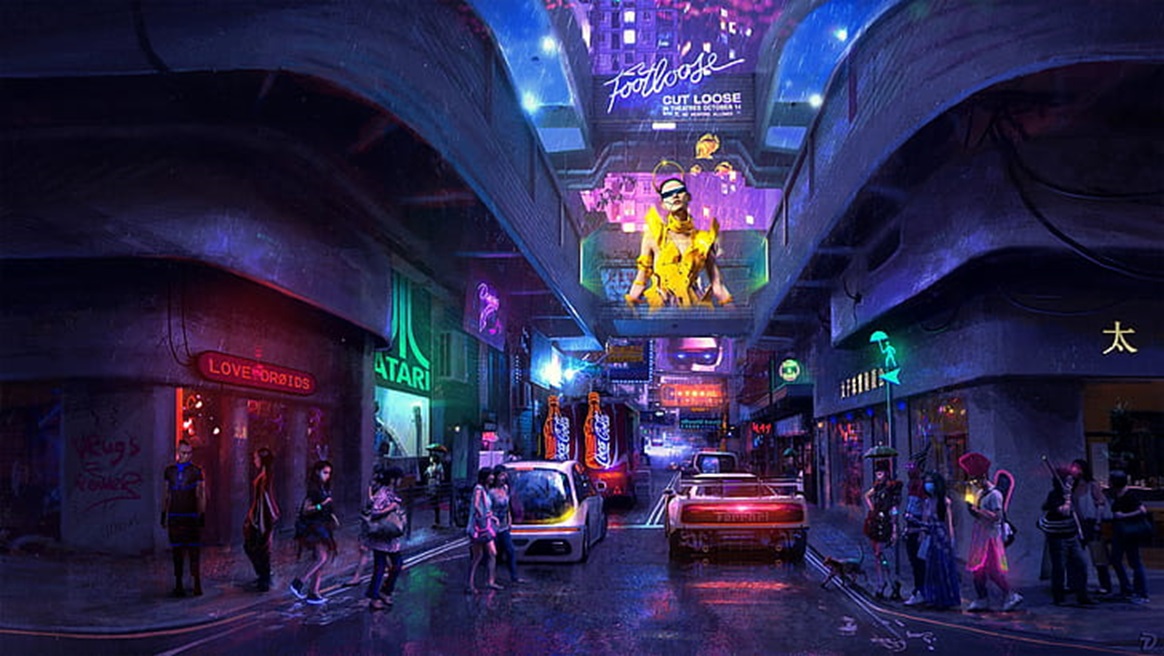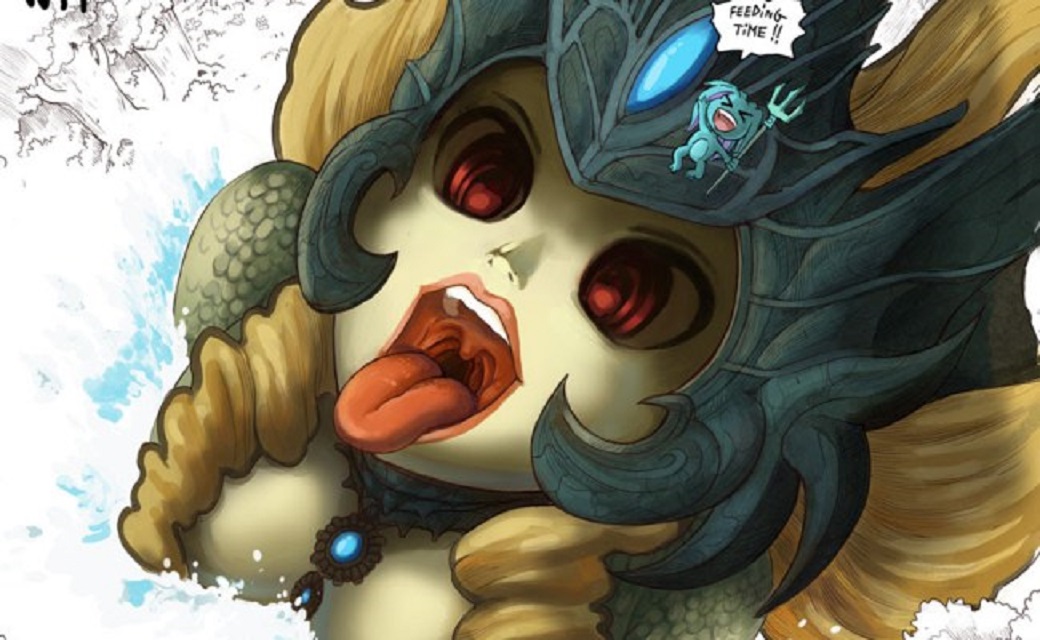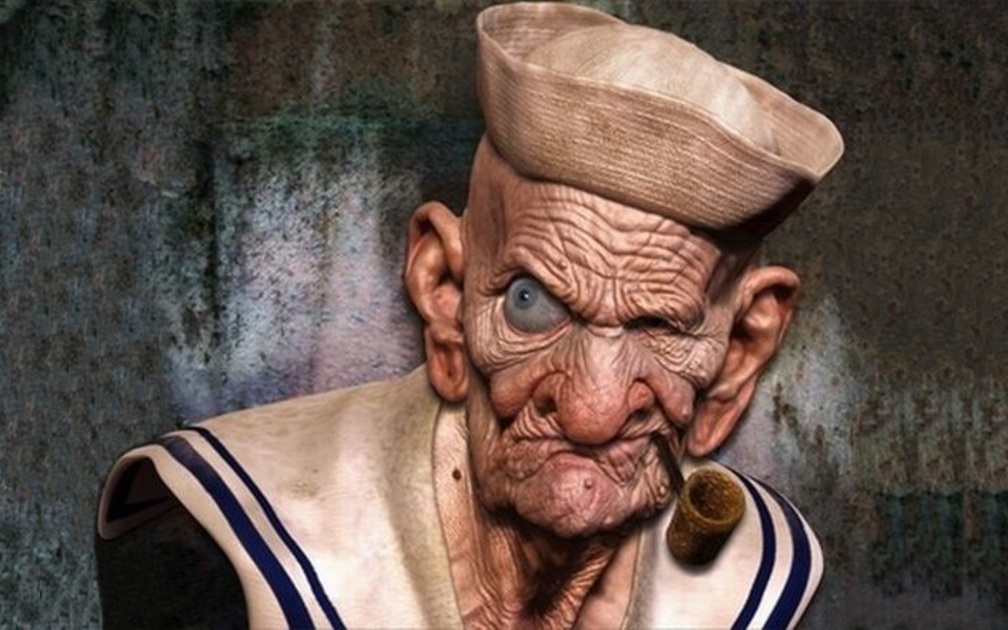Who we really are doesn’t need therapy – it’s only the case that when we’re not ourselves that we need all sorts of tricks and gimmicks to help us on our way! When we’re pretending to be who we’re not, and don’t know that we’re pretending, then that’s when we need psychological therapy. When we’re reconnected with our ‘source’ – so to speak – then we don’t need any skills or methods to help us feel better…
This might sound like a typical fluffy New Age-type statement to be making but it isn’t – it’s just that we’re not used to thinking this way. The suggestion that we’re all going around identified with a false idea of ourselves doesn’t make any sense to us. Regardless of whether it makes sense to us or not however, the most essential and no-nonsense thing we can ever say – from a psychological point of view – is that we aren’t who we think we are (or that we’ve completely lost our connection to who we really are). If we ignore this rather pertinent detail then we’re clearly on the road to nowhere! If we blithely assume that who ‘we think we are’ is bound to be the very same thing as ‘who we actually are’ then we’re going to end up living our whole lives on the basis of a ‘mistaken identity’.
The point is that we are extremely malleable, extremely suggestible, extremely gullible and so the forces outside of us are constantly acting on us, shaping and moulding us without us even knowing that this is happening. This is what society is all about, even though no one ever comes out and says it. Society works by moulding us in its own image – if it weren’t to do this then there wouldn’t be any such thing as ‘society’. Society is what happens when we’re all singing from the same hymn sheet and ignore what we really think, so to speak. We neglect what is unique and precious about us and eagerly cultivate what is generic and ‘cheap’.
Most of us would say that the process of social adaptation is a very necessary one and in one sense this is certainly true. As Gabor Mate says, we start off in life being acutely aware that we just can’t afford to be rejected or abandoned, or ‘not approved of’. We simply wouldn’t be able to survive if this happened. The need for approval is therefore the same thing as the need to survive. There’s more to the story than this however – if we just charge ahead and adapt to the social milieux to the fullest extent that we are able then something downright sinister happens (even though we don’t at all like to use this word). An event that is entirely detrimental then occurs and this event can be talked about in terms of ‘the death of who we really are’. We lose ourselves in the process of social adaptation in other words, and when we do this our lives become absurd.
This is the danger posed by society to our mental health, therefore. We never talk about this danger but it’s the biggest one we will ever face, all the same. We can express this invisible danger as follows – society, if you aren’t very careful, can result in your inner death, leaving nothing behind but the crassly socialised ‘outer husk’, which will – if allowed – quite happily live your life for you. This really ought to come in the form of an official Government Health Warning, only – needless to say – it doesn’t. No one ever asks us if we want to be indoctrinated into the very narrow and artificial way of life that we are indoctrinated into, and no one warns us that it will be bad for our mental health if we let this happen. In order to see that we’d have to be ‘on the outside’, we would have to be ‘non-adapted’, but if we were on the outside of society, if we were not properly socialised, then no one would ever listen to us. No one would trust our insights, and we wouldn’t be permitted to have a voice. At the very best, we’d be seen as eccentric – someone either to be laughed at or pitied, but not ever listened to.
The question that raises itself next – if we were to continue with this line of reasoning – is whether it is actually possible to live life on the basis of ‘believing ourselves to be who we aren’t’ and continuing day to day on the strength of a mere social fiction? Can this actually work? Is it possible to be a ‘well-adjusted personality husk’, and yet at the same time live what appears to be a meaningful and rewarding life? The answer would appear to be not particularly clear-cut – sometimes it does seem to be possible to carry on quite happily on this fictional basis (as far as we can tell, at any rate) whilst at other times it’s clear that living the theatrical life – which is where we pretend to be this person, and then forget that we’re pretending – comes with a whole host of problems (which is of course what we would expect). I can put on a mask from time to time if necessary and no harm will come to me of this; when I have the mask on the whole time however, and when – in addition – the mask ‘takes over the person’, then we would surely have to say that there is something not very healthy about this! The helpful strategy has subsumed the person who was trying to utilize it, which means that the ‘strategy’ is in fact utilizing us…
It is often said that there are aspects of society that are responsible for damaging our mental health but to express matters in this way this is to miss the point big time – that would mean that all we have to do is ‘correct society’s faults’ and then everything will be fine and dandy and this simply isn’t the case. We are always more than happy to try to improve the world around us – that’s kind of ‘what we do’ – but this is no more than a displacement mechanism – no matter how many improvements we make it’s not going do us any good. It’s not going to do us any good because what needs to change isn’t the world around us but ourselves. We want the system to work for the image we have of ourselves (as adapted members of the social system) but nothing can help us as ‘adapted human beings’ because this is just an act that we put on. This is just an act that we put on and that means that when we do feel good then this too is only an act. The only type of happiness we can have in the unreal game we are playing is theatrical happiness (which is to say, happiness that is for show); the only type of mental health we can have is ‘nominal mental health’, which – again – is only the external appearance of mental health. It has the ‘name’ of being mental health whilst – in reality – it is only a comfort-producing delusion.
Nothing real can happen to us unless we too become real. ‘Life is real only then, when I am.’ says Gurdjieff. Social existence is essentially a theatrical affair, which is to say, it’s all about being seen to follow the conventions. Nothing else matter as long as I am seen to do this – as long as I ‘say what I’m supposed to say and do what I am expected to do’ no one cares if I really mean it or not. In the World of Appearances all that is required of us is that we come up with the appearance that is expected of us at the time; more to the point, when we live in the World of Appearances, the World of Images, the World of Positive Statements, then nothing else exists apart from what has been stated, nothing else counts apart from what has been ‘theatrically enacted’. It’s as if there is nothing on the inside apart from ‘what has already been stated on the label’.
Although nothing is acknowledged in the game apart from the stated reality, apart from the nominal level of meaning, this doesn’t mean that there is nothing else happening – it just means that we’re profoundly oblivious to it! This is of course how games work – games are exercises in ‘assigned meaning’. We will carry on living the theatrical (or unconscious) life even when there’s stuff going on behind the scenes that is putting major pressure on the image that we wish to present to the world and to ourselves, and this is of course exactly what we experience when we have what is traditionally called ‘a mental breakdown’. A breakdown is called ‘a breakdown’ for a good reason – it’s the breakdown of our self-image. The theatrical image of ourselves is under such serious pressure that it has become very nearly impossible for us to convincingly maintain it, and because – as far as we’re concerned – the image is the thing, this plunges us into a state of profound and unremitting suffering. There is no worse suffering than the suffering caused by identifying with a disintegrating unreal mental construct that we can’t see to be ‘an unreal mental construct’.
When we say that ‘who we really are doesn’t need therapy’ therefore this is what we’re getting at – the theatrical image of us needs therapy, needs assistance, needs some kind of formulaic way to maintain itself or hold itself together and this is where our so-called ‘psychological therapies’ come in. Any therapy that is rational (or purposeful) in nature is always there to serve the image or idea we have of ourselves – such therapies represent our compulsive allegiance to the ‘theatrical level of things’. The fear we are up against in this situation is the fear of losing our image of ourselves and the image of ourselves is all we know, all we believe in, and so to have it crack up and fall to pieces before our very eyes is extraordinarily distressing for us. Naturally we’re going to be looking for something to prop it up and return it to some degree of functionality; the mental health of the theatrical self is the only type of ‘health’ we know and so of course we’re going to work as hard as we possibly can to protect and promote it – this unexamined ‘allegiance to the theatrical’ informs everything we do in the mental health sphere. This is what we almost always do, but what we’re doing here is ‘defending who we’re not’, even though living life on the basis of ‘who we’re not’ can never be anything more than an ongoing exercise in unnecessary suffering!
We are ‘protecting who were not’ to the bitter end and we’re trying to prop up its so-called mental health, even though the mental health of the theatrical identity isn’t health at all, but – as we have already said – merely a state of socially-validated delusion. The Theatrical Identity can only survive in a well-maintained Bubble of Illusion and so of course we going to see mental health in terms of the maintenance of this bubble when we are in the Identified Mode of existence. For ‘who we really are’ this way of looking at things switches around and it is the truth (or rather our willingness to connect with the truth of our situation) that constitutes mental health, not what that truth might turn out to be. We’re not defining anything here – it doesn’t matter what the truth turns out to be just as long as we have the courage to see it…
Our problem is basically that we can’t believe in anything that can’t be defined (or pigeonholed) by the thinking mind – the only type of meaning we understand is meaning of the extrinsic or assigned variety, in other words. If something is defined then we can – potentially at least – accept it as a real thing; if it can’t be defined then we won’t register it at all. We won’t do business with it. If – on the other hand – who we perceive ourselves to be is ‘the stated or defined self’ then purposeful or goal-orientated psychological therapy makes sense – in this case it’s obviously ‘the way to go’. But since ‘who we truly are’ (outside of any arbitrary act that we might be putting on) can’t be defined – which it absolutely can’t since it isn’t ‘a thing’ – then purposefulness as a modality is simply no good to us. When ‘the right way to be’ can be defined then it makes sense for therapy to be goal-driven; all our efforts in this case are going to be directed towards ‘making things be what we think they should be’ (which equals ‘forcing’ or ‘control’). If there is no ‘right way to be’ (i.e. if who we are is ‘intangible‘) however then our goals become meaningless (or rather worse than meaningless since our goals are now ‘suffering-producing delusions’). In this case we can say that mental health is – as we’ve just said – a state of relatedness to the truth, which is another way of talking about freedom because when we can allow ourselves to see the truth of our situation then we are free. We’re ‘free’ because we’re no longer have any ‘allegiance to the theatrical’, we’re free because we are no longer obliged to spend all our time propping up and maintaining a false and limiting idea of who we are without being able to see that what we’re working so hard to protect only is ‘a false and limiting idea of ourselves’ (a false and limiting idea which actually has nothing to do with us at all). Our allegiance or loyalty in the ‘unconscious modality of being’ is to thought and the thing about this is that our thoughts or ideas are never true….
Art – taken from – basastudio.com






